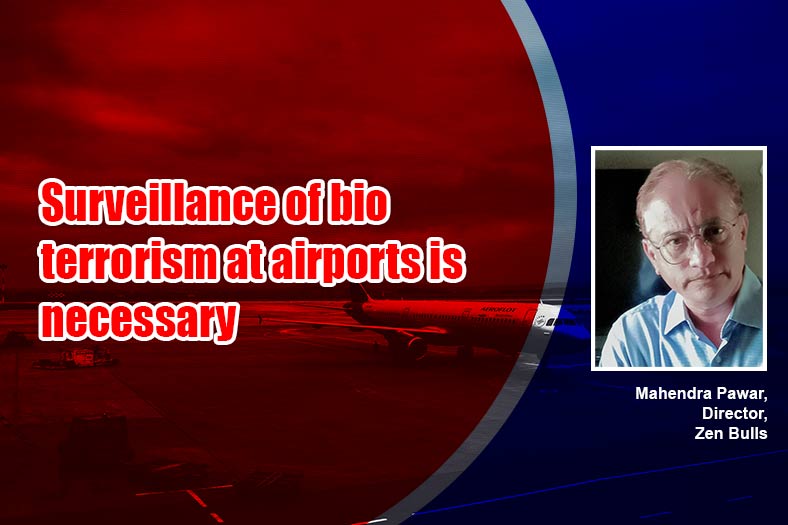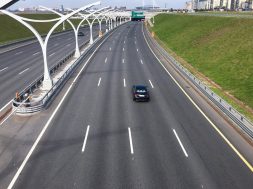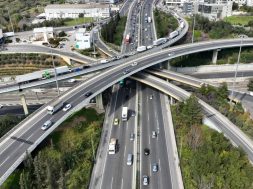Surveillance of bio terrorism at airports is necessary

Each airport should have a medicare center for preventive treatment testing services or a lab for non-documented travelers, for analysis of Covid19 infected conditions, says Mahendra Pawar, Director, Zen Bulls.

What are some of the major changes in airport design one will be witnessing in the post Covid-19 era?
Changes can or should be expected, with respect to the circulation of arrival & departure with major segregation of transiting passengers, visiting passengers, VIP passengers, at the time of check in or before security check. In case of infected passengers, they should be enclosed or segregated in incubation zones or deportation zones in case of International.
Each airport should have a Medicare center for preventive treatment testing services or a lab for non documented travelers, for analysis of Covid-19 infected conditions. Sanitized lounges, which should be treated with airlock systems, from the infected or possible spread areas. During security check the surveillance of bio terrorism should be taken into consideration, can of major concern since airports are very vulnerable to such attacks.
Especially for large airports what kind of facilities are needed to ensure navigating within the airport is easier?
Indoor positioning, navigation, mobile tracking are some of the facilities which are desired to address this issue.
Attractions, such as retailers, food courts, restaurants, airport lounges should be highlighted. Medicare and information on disability services, such as wheelchairs, indoor shuttles, elevators. Direct alternate routes, in the event of a bio hazard emergency, fire hazard, security services, maintenance and terminal closures should be made easily available. This can be done with guide stations besides which visual displays of various types can be used for navigation. Fixed digital displays and virtual holographic projection signage can be used and on request can be integrated with the cell phones so that navigation becomes a lot easier. Terminal mapping apps or tracker, pertaining to the specific airport infrastructure, with respect to the transit of passengers can be integrated with the airport system, for mobile information on airport activities.

In India as also in some other parts of the world, major airports are limited to metros alone. Do you see any kind of decentralization happening there in the near future?
Yes, most of the developed airports are in metros. The airports in other cities need to be planned at an international level, since the world is getting closely connected. These days roads and highways too are being built on a rapid scale, international travelers now need not travel to all the way to metros, they can directly board their respective flights at the local airports. Nationally India is the runway, creating multiple at various location on the flight landing decent path or circulation, for a particular city (which can be considered in urban design), this will evenly distribute the overall traffic, to sublocation, with nuclear terminal facilities, for take-off and landing, with synchronized pattern of flight paths.
This shall save the travel timings, taxiway waiting timing, over all rush hour to airports. Creating sub terminals or runway network, shall save time, compared to new terminals of a similar size. Sub Terminals can be connected to the main terminal by underground pathways, likewise, metro lines network which emerges from the airport can be in the process of decentralization of airports such as Mumbai airport as also the upcoming Navi Mumbai airport, in doing so the passenger’s density will be distributed and reduce the overloading at the Mumbai Main Terminal. An attempt is being made to set a similar example by Jewar International Airport in UP in context with the New Delhi Airport.
What kind of multi-modal integration is necessary to ensure that access to the airport becomes easier?
Multi-modal integration in brief it is complete integration of all forms of movement or moving entities, model of modern-day traffic pattern, with respect to usage of vehicular traffic, private, public, MRT/LRT, utilities, pedestrian etc. Which needs to be integrated with the source destination. Accessibility to the airport can be connected with various mode of transportation; metro trains can be connected directly to the main buildings of the terminal, and airport shuttle services from various locations of the city need to be in place. Baggage check in can be done in pre advance, from various locations or stations, The major aspect of this integration is to save time and cost, which eventually saves energy aids sustainability and reduces carbon footprint.
The objective of ease and efficiency of mobility on ground and above ground can be conceptualized in a way to decentralize the runway location, at various urban locations, connected to the main terminal or sub terminal, this will ensure heavy congestion at single main terminal leading all transit modal integrating at one point. The illustration mentioned below a brief sketch of decentralizing integrated with some metro stations and vice versa. .

Cookie Consent
We use cookies to personalize your experience. By continuing to visit this website you agree to our Terms & Conditions, Privacy Policy and Cookie Policy.









